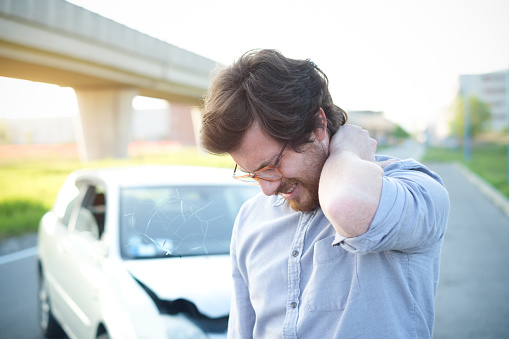
by Charlie Smith | Apr 15, 2020 | Personal Injury |
Understanding Personal Injury Settlement Pain and confusion are often results from any accident. More common from are personal injury cases that could bring even more devastation to parties involved. A personal injury case is legally recognized as disputes arising from an accident as a result of one or more people suffering various degrees of damages. What exactly is personal injury law? In laymen’s terms, a personal injury case may refer to any legal dispute resulting after a person was injured or harmed in any way because of an accident. Personal injury cases are filed when there is someone at fault and are legally responsible for the accident which has occurred. Cases are then processed by a civil court proceeding which seek to better understand and find who is at fault for the accident. Civil court proceedings may be resolved through a court judgment or through an informal settlement process. When issues are not able to be resolved informally, a lawsuit will need to be filed. What is a formal personal injury case? Formal personal injury cases, also known as “formal lawsuits”, are the result of a plaintiff filing a civil complaint against another person, business, corporation, or government agency. The plaintiff’s claim usually involves the defendant to be irresponsible and careless and therefore causing the accident to take place, resulting in harm and injury. Can a decision be reached without going to court? Depending on the outcome early on in the case, yes, sometimes an informal settlement can be reached, meaning the issue is resolved without turning into a “formal lawsuit”. To reach a settlement early on in the...

by admin | Oct 15, 2018 | Blog, Personal Injury |
Halloween is meant to be a fun time for parents and children to hit the streets in their spookiest attire. Unfortunately for responsible trick-or-treaters, many people take the holiday as an opportunity to put others in danger. Drunk driving is a reality every holiday, but it’s arguably never more pertinent to pedestrians than on holidays such as Halloween. We’re here to give you a brief rundown on Halloween drunk drivers and how to handle them. Halloween Drunk Drivers One of the reasons that drunk drivers are so dangerous on Halloween is that so many people, mostly children, are walking the streets. Not only are they walking, but they’re often running and playing in black clothes on the street. In addition, Halloween’s increase in drunk driving threatens other sober drivers on the road. These facts make Halloween one of the deadliest nights of the year. The combination of vehicles and children on the roads makes a dangerous mix by itself, but it’s amplified when alcohol is involved. The National Highway Traffic Administration stated that almost 45 percent of Halloween road-deaths were a result of drunk driving. These numbers spike when Halloween falls on a Friday or Saturday night. When the holiday falls on weekdays, the weekends before and after are also dangerous. It’s obvious that Halloween is dangerous, but what can be done about it? Approaching Halloween Night You’re in a good position if your children are at an age when they can’t trick-or-treat alone. If you’re with your children, make sure to be alert to your surroundings at all times. Even residential neighborhoods are vulnerable to drunk drivers, so it’s essential...

by Charlie Smith | Mar 22, 2018 | Automobile Accident, Blog, Personal Injury, Personal Injury Lawyer |
Being hit by another driver is a terrifying moment, and if alcohol was involved, it can be even more difficult to know how you should proceed. You’ll need to file an insurance claim just like you would in any other accident, but you should also consider working with an attorney. A specialist who is familiar with the laws in your state can help you navigate your insurance policy, seek a settlement from the other party’s insurance, and, if needed, take your case to court. Follow these steps if you’re in an accident involving a drunk driver. Call the Police You’re required to call the police and report an accident in certain situations, such as if a personal injury occurs or there is significant property damage. Regardless of the requirements in your state, however, having police on the scene can help you get insurance information and communicate with the other driver and witnesses. If alcohol is involved, the police report and the officer’s testimony will be vital evidence when you file a claim. Take Notes and File an Insurance Claim Once you’ve confirmed that everyone is safe and you’ve called the police, gather information about the accident. This should include taking photos of the damage and collecting contact information from the other driver and any available witnesses. You should also note the road conditions, the stop lights and other road signs you followed, and the other driver’s condition. You can then report the accident to your insurance company. Your insurer will provide compensation for repairs to your vehicle, medical expenses, and other related costs. Your insurance company will charge the...

by Charlie Smith | Mar 11, 2018 | Blog, Cruise Injuries, Personal Injury |
Getting the care you need at home following an injury can be a difficult process. If you’re hurt while on a spring break cruise, you may have an even harder time understanding your health insurance coverage and getting the treatment that you need. If you’re planning on spending some time at sea this spring, make sure you follow these steps if you’re injured. Report the Accident From slips and falls to more serious events such as assaults, injuries do occur on cruise liners. No matter the severity or type of injury, your first step should be to report the accident to the cruise line as soon as possible. Before you leave the port on your trip, check the company’s policy for reporting and responding to an accident. Do your best to follow these requirements. Finally, take notes about what happened and keep all documents and information related to the injury, such as medical reports. Document the Accident As with any type of injury, you should document the event thoroughly as soon as it’s safe to do so. Take photos if possible, collect witness contact info, and record what led to and caused an accident. You should also note the company’s response and any treatment that you received. Your documentation may be used to help prove that the cruise line acted negligently and contributed to your injury. Seek Medical Attention No matter the severity of an injury, you should seek medical attention to help you document the accident and subsequent damages. Your initiative will also prevent the company from claiming that since you didn’t see a doctor, you must not...

by Charlie Smith | Feb 16, 2018 | Blog, Personal Injury |
Despite evidence that motorcycle helmets save so many lives, only 28 states have helmet laws on the books. Of these 28 states, only 19 require both the passengers and driver to wear helmets, while the other nine states only mandate that the driver wear a helmet. If you live in a state that has motorcycle helmet laws, it’s important to know just how it affects you in case of a motorcycle accident causing injury or death. Knowing the Law in Your State Whether you ride a bike or drive a car, it’s paramount to know every aspect of helmet laws because accidents do happen and you want to be aware of your rights. These laws can affect the outcome of any claims or damages you’re involved in. In 2010, Florida lawmakers amended the Florida Statute so that a motorcyclist may ride a bike without a helmet only under certain criteria. They must be over the age of 21 and have an insurance policy that provides at least $10,000 in medical coverage. If you don’t meet these requirements, it is the law to wear a helmet while operating or riding on a motorcycle. Personal Injury & Comparative Negligence Even if it isn’t mandatory to wear a helmet, if you suffered an injury while not wearing a helmet it can still impact a personal injury lawsuit filed by an injured motorcyclist. This usually falls under comparative negligence, meaning that both you and the other person involved in the accident are responsible for the injuries, often regardless of who actually caused the accident. Florida is a pure comparative negligence state, meaning that...

by Charlie Smith | Feb 16, 2018 | Blog, Personal Injury |
Negligence describes a scenario wherein a person acts carelessly, which results in an injury or property damage to another party. It’s perhaps the most common of the personal injury lawsuits, but it’s also one of the most difficult to prove in a court of law. What Constitutes Negligence? Negligence is the failure to use reasonable care, resulting in damage or injury to another. The most difficult part of negligence cases is determining reasonable conduct. For example, a driver must exercise the same care that a “reasonable person” would in the same situation, which includes driving according to traffic laws and being aware of other drivers and pedestrians. If a driver fails to wear his glasses and injures someone, they can be considered negligent because a “reasonable person” wouldn’t forget to wear their glasses. Reasonable conduct is the basic legal standard for figuring out who is at fault. To ascertain reasonable conduct, both parties must analyze the circumstances of the incident and determine what a reasonable person would have done in the situation. Negligence and the Burden of Proof In claims that are a direct result of accidents or injuries, the burden of proof lies on the plaintiff. To win a case and prove negligence on behalf of the defendant, a plaintiff must prove duty, breach, causation, and damage. This essentially states that the defendant had a certain duty, broke the responsibilities of the duty, caused an injury or property damage, and are liable for damages. Criminal vs. Civil Cases and Negligence One aspect that makes winning a negligence case easier than a criminal case is that you don’t have to...








